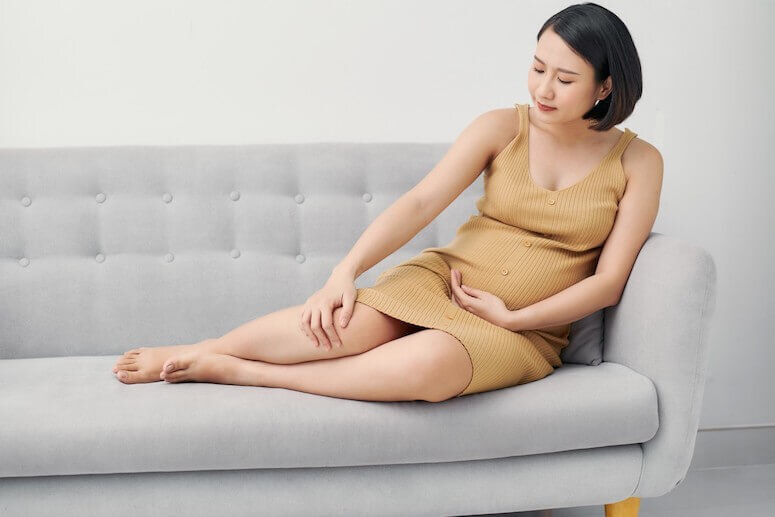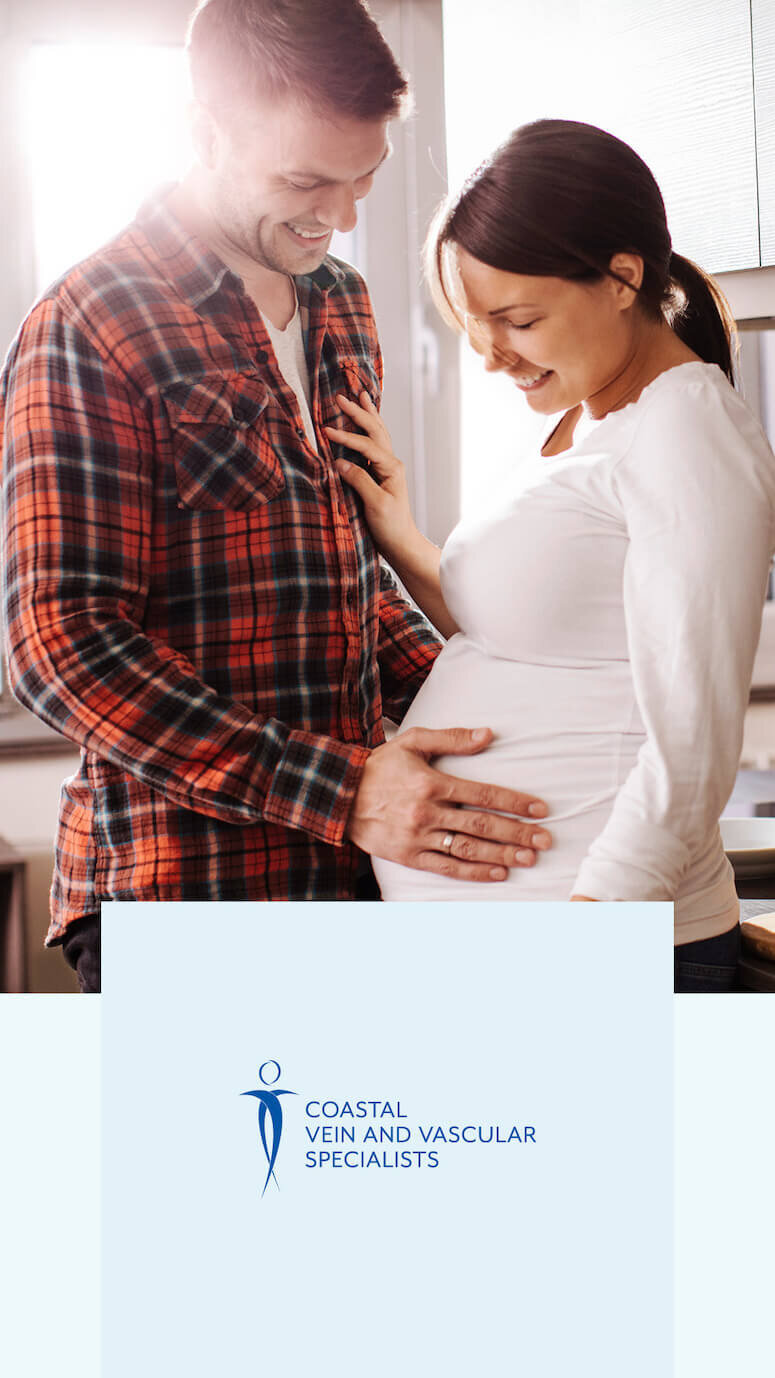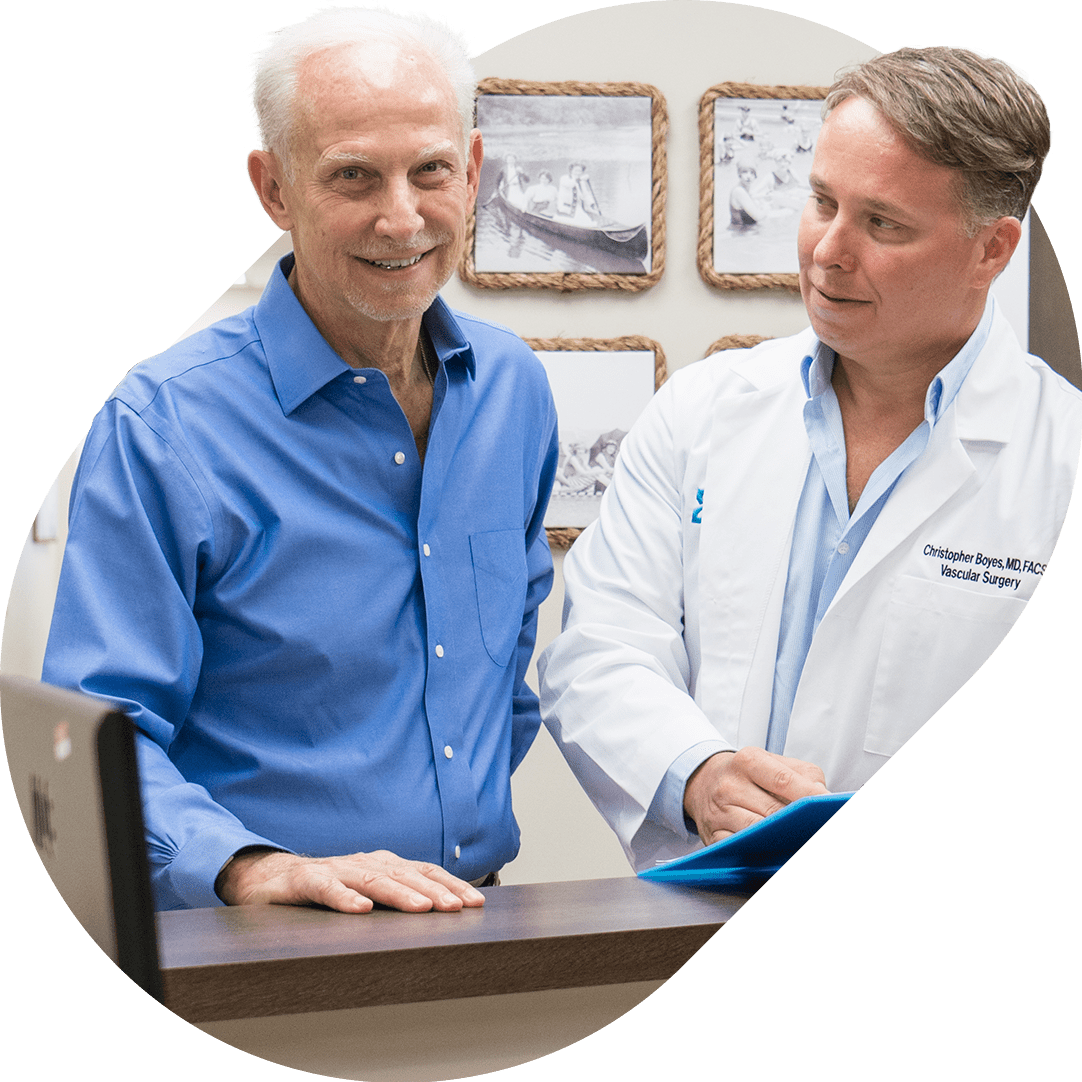As a new mom usually discovers, pregnancy affects everyone in different ways. Among the plethora of changes, one that is often overlooked is the onset of spider veins and varicose veins. While sometimes mild or non-existent, the symptoms of varicose veins may present in a later trimester or successive pregnancy.
Before we get into why, here are the basics about varicose veins. Each heartbeat pumps blood throughout the body, nourishing cells and organs with oxygen and nutrients. Blood also carries away waste material. Arteries carry enriched blood away from the heart, while veins return depleted blood back toward the heart to be replenished.
Blood traveling through the veins of the leg has the longest journey back to the heart. Typically leg blood flow goes against the pull of gravity. At this furthest point from the heart, the pulse is also at its weakest. To aid the process, veins have fleshy valves in the interior walls to facilitate blood flow in one direction.

When these valves begin to fail, blood flow can reverse or become stagnant. This can cause the veins to twist, bulge, and discolor. These failing veins are varicose and can cause swelling, pain, and serious health consequences. Smaller veins near the skin surface can discolor in a web-like cluster – these are known as spider veins.
There are a variety of factors that are known to contribute to varicose veins. Pregnancy is one of them. As you will see, there are several reasons why a mom-to-be may experience varicose veins and spider veins.
The first is an influx of hormones into the bloodstream, particularly progesterone, which is necessary to relax certain ligaments and muscles during pregnancy. It also relaxes venous walls and can cause the valves to be less effective in regulating blood flow.
Pregnant women also experience an increase in blood volume, required to nourish the fetus. Volume can increase as much as 20 percent. This exerts additional pressure on the system of blood vessels, and veins often enlarge or bulge during pregnancy.

Blood flow in the legs is dependent on muscle activity to provide additional pulsation. If a pregnant woman becomes less active, reduced muscle activity can put an additional workload on leg veins.
As a pregnancy goes into the second and third trimester, the baby continues to grow within the uterus. As the uterus enlarges, it begins to put unusual pressure on pelvic veins and the inferior vena cava, the main blood vessel into which all veins feed. This pressure can cause varicose veins in the groin area. It can also restrict the rate of blood flow, putting further pressure on leg veins.
This confluence of circumstances related to pregnancy can result in new varicose veins and spider veins in pregnant women. Many of these conditions change postpartum and varicose symptoms subside. However, there are actions that can be taken during pregnancy to alleviate the pain, discomfort, and appearance of varicose veins. Maintain regular exercise, do not gain excessive weight, elevate legs often, wear compression stockings, and avoid crossing legs to reduce the affect. Sleeping on your left side also positions the baby in a way that reduces pressure on the veins.
Consult a physician if you experience pain related to any of these conditions. There may also be medical options available.
Typically, varicose veins and spider veins related to childbearing diminish after birth. As hormone levels normalize, internal pressures dissipate, blood volume reduces, and childcare increases activity levels, the return of normal vein function often occurs.

Sometimes, but not always, varicose veins and spider veins do not completely go away. Around 3-4 months after delivery the condition of the veins can be determined by a vein specialist. While varicose vein diagnoses may be offered by general medical doctors, it is best to consult a board-certified vascular surgeon. These professionals undergo years of additional medical schooling and even more years of practical training in the vascular field.
Patients who live in or visit Florida have found the top-rated services of Dr. Christopher Boyes of Coastal Vein and Vascular Specialists. Located in Palm Beach Gardens, Florida, as a board-certified vascular surgeon, Dr. Boyes helps those with minor and severe vascular issues.
With the treatments available today, there is no reason to live with the pain and risk of varicose veins. Please call the office during normal business hours at 561-295-4110 to schedule an appointment or use the online contact form at any time.
RESOURCES:
Varicose Veins During Pregnancy (University of Pennsylvania)
https://www.pennmedicine.org/updates/heart-and-vascular
Varicose Veins (Mayo Clinic)
https://www.mayoclinic.org/varicose-veins/syc-20350643
Varicose Veins and Spider Veins (U.S. Dept of Health & Human Services)
https://www.womenshealth.gov/a-z-topics/varicose-veins-and-spider-veins
10 Things That Might Surprise You About Being Pregnant (Johns Hopkins Medicine)
https://www.hopkinsallchildrens.org/10-Things-That-Might-Surprise-You-About-Being-Pregnant

Subscribe to our newsletter
© Copyright 2023 Coastal Vein & Vascular | All Rights Reserved | Privacy Policy | Powered by Cord Media